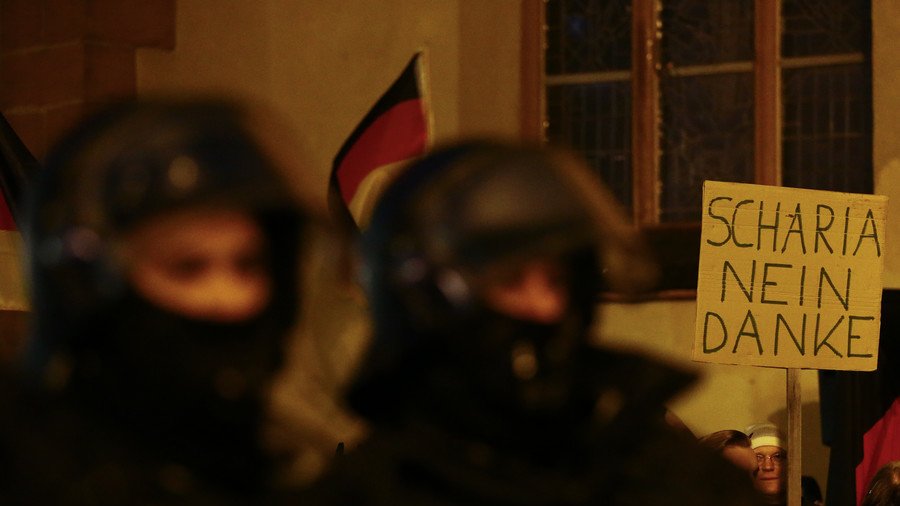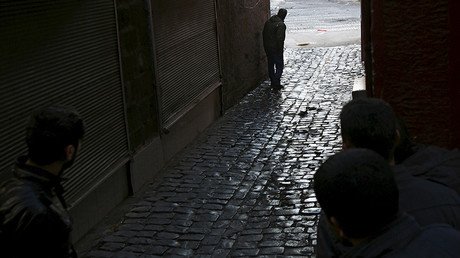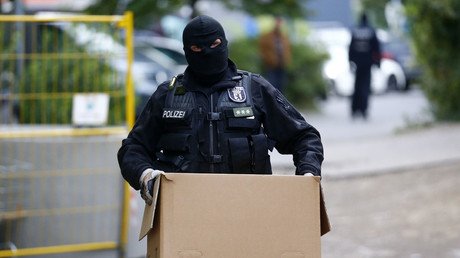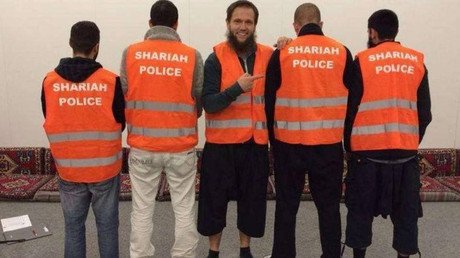Top German court orders retrial of ‘Sharia police’ street vigilantes

Germany’s top court has tossed out a lower court’s ruling that found a group of uniformed German Salafists, who wandered the streets of a suburban town telling residents to abide by the strict Muslim code, in line with the law.
Germany’s Federal Court of Justice ruled on Thursday that the lower court did not taken into account how the vigilantes’ actions affected the public of the western German town of Wuppertal, North Rhine-Westphalia, and ordered a retrial of the group acquitted in November 2016.
Seven members of the self-styled “Sharia police” were initially charged under the law prohibiting the wearing of uniforms to express political beliefs. However, the Wuppertal court ruled that the men did nothing wrong, stating that the orange vests they were wearing during their controversial raids in September 2014 were not “suggestively militant” or “intimidating.” The garments in question had “Sharia police” printed on the back.
During the raids, the group encouraged Wuppertal revelers to refrain from drinking alcohol, listening to music and gambling, as these actions are outlawed under the ultra-conservative interpretation of Islam that they follow. Their actions sparked outrage across Germany. Justice Minister Heiko Mass spoke out against an apparent attempt at establishing parallel justice, while Interior Minister Thomas de Maiziere warned that “Sharia is not tolerated on German soil.”
The court’s decision to clear the group of any wrongdoing drew the anger of the local population and police alike. Head of the German Police Union (DPolG) Rainer Wendt at the time called the acquittal “an unbelievable and devastating signal” that makes German police feel “completely failed” by the justice system.
The group was led by German Salafist convert and Islamist preacher Sven Lau, who is currently serving a five and a half year jail sentence he was handed last July for aiding the terrorist group Jaish al-Muhajireen wal-Ansar, or JAMWA, which pledged allegiance to al-Qaeda and was previously affiliated with the Islamic State (IS, formerly ISIS/ISIL).
The court found Lau guilty of transferring money and equipment to the group, whose name stands for “army of emigrants and helpers,” and for recruiting would-be jihadists to fight in Syria and Iraq.
Wuppertal is a popular destination for German Salafists, who clashed with the anti-Islamist Pegida movement in March 2015.
The town’s name grabbed headlines again in March last year when a local school said public praying on its precincts were “provocative” and asking staff to report students who pray in public to the administration. While the local government authority said the ban on praying in public spaces like bathrooms and halls serves the goal of peaceful coexistence, critics of the measure argued it violates religious freedoms.
















